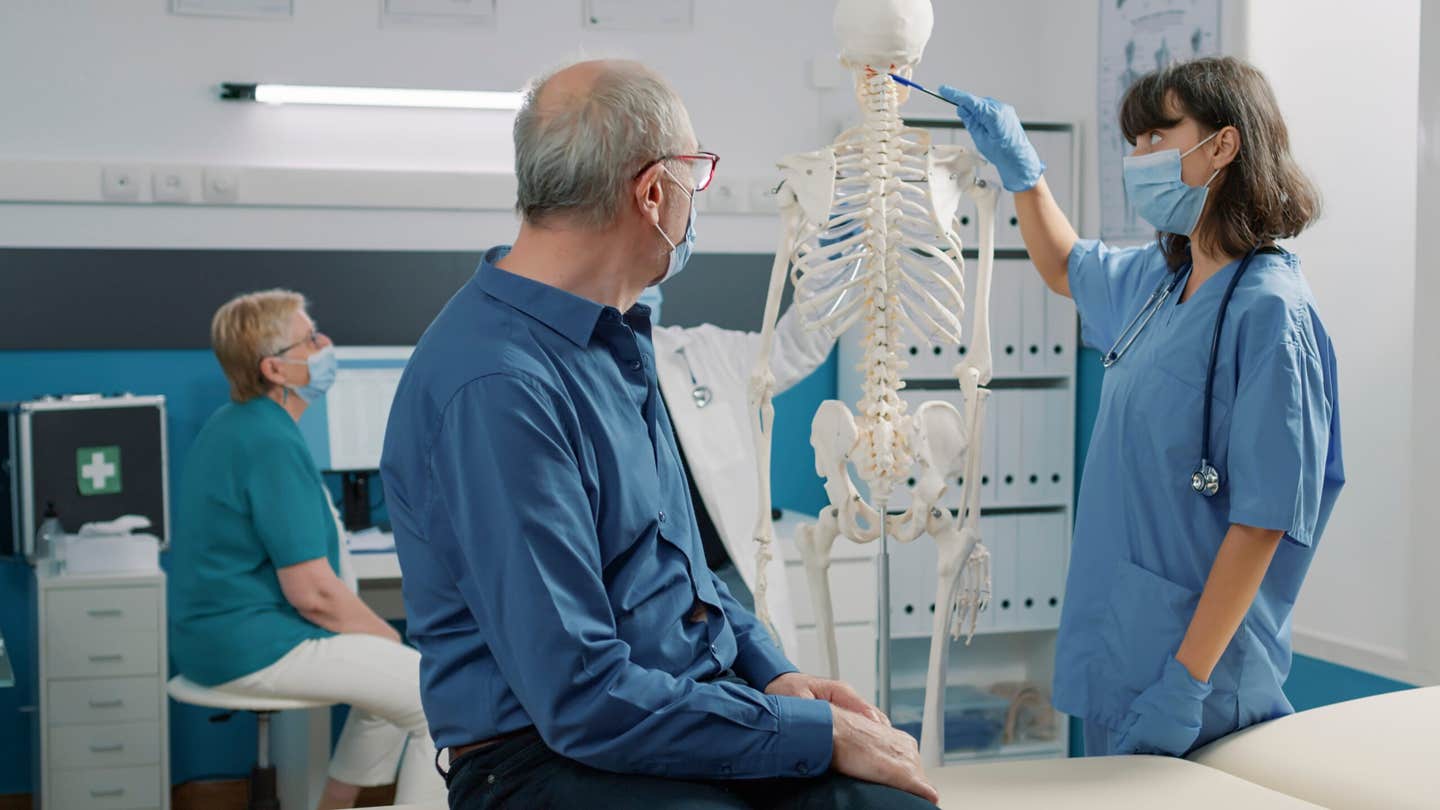Mediterranean diet can slow memory decline and reduce dementia risk
A new study shows the Mediterranean diet can cut dementia risk, even in people with the highest genetic risk.

A Mediterranean-style diet may slow memory decline and reduce dementia risk. (CREDIT: Shutterstock)
When it comes to memory loss and dementia, your genes play a powerful role. But as new research shows, what you eat—and how your body processes that food—can make a surprising difference, even for people with the highest inherited risk.
A study published in Nature Medicine brings together genetics, blood chemistry, and diet to explore how lifestyle can alter the odds of developing dementia, including Alzheimer’s disease. Led by scientists from Mass General Brigham, the Harvard T.H. Chan School of Public Health, and the Broad Institute of MIT and Harvard, the project followed thousands of health professionals for more than 30 years.
The results suggest that a Mediterranean-style diet, rich in fruits, vegetables, olive oil, and fish, may not just be good for your heart. It can also slow memory decline and lower dementia risk, especially for people carrying the riskiest genetic profile.
The Gene That Raises the Stakes
One gene stands out when scientists talk about Alzheimer’s: apolipoprotein E, or APOE. A variant called APOE4 is the strongest known genetic risk factor for late-onset Alzheimer’s disease. People with one copy face a three- to four-fold higher risk than average. Those with two copies—APOE4 homozygotes—can have a twelve-fold higher risk.
But genes are not destiny. “These findings suggest that dietary strategies, specifically the Mediterranean diet, could help reduce the risk of cognitive decline and stave off dementia by broadly influencing key metabolic pathways,” said study first author Yuxi Liu, PhD, a research fellow at Brigham and Women’s Hospital and postdoctoral fellow at Harvard Chan School and the Broad Institute.
Related Stories
- Green Mediterranean diets can significantly reduce body fat
- Mediterranean diet may delay brain aging, study finds
Following People Across Decades
The study pulled data from two of the most detailed long-term health projects in the United States. More than 4,200 women in the Nurses’ Health Study were tracked from 1989 through 2023, beginning at an average age of 57. A second group of nearly 1,500 men came from the Health Professionals Follow-Up Study, which started in 1993.
Participants completed detailed food questionnaires, gave blood samples, and provided genetic data. Researchers could then measure metabolites—tiny molecules in the blood that reflect how food is processed and how the body’s chemistry is functioning. Because metabolites are shaped by both genetics and environment, they serve as a bridge between DNA and lifestyle.
A smaller subset of more than 1,000 women also took regular memory and thinking tests by phone, allowing scientists to track how their cognition changed over time.
Blood Chemistry as a Messenger
The researchers identified 57 blood metabolites tied to dementia risk. The influence of those molecules depended heavily on a person’s genetic background.
For people with two copies of APOE4, certain fats such as cholesteryl esters and sphingomyelins were strongly associated with higher dementia risk. At the same time, other fats called glycerides seemed protective—but only in this high-risk group.
The study also pointed to metabolites linked to other genes. One example is dimethylguanidino-valeric acid, which showed a stronger connection to dementia risk among people carrying a variant in the APP gene, long studied in relation to Alzheimer’s. These patterns suggest that different genes interact with metabolism in their own ways, shaping the pathways to brain decline.
Why the Mediterranean Diet Stood Out
The Mediterranean diet has long been praised for supporting heart health. It emphasizes plant-based foods, olive oil, fish, nuts, and whole grains, while limiting red meat and processed products. In this study, the diet was again linked with slower memory decline and reduced dementia risk.
The impact was greatest among people with the highest inherited risk. For those with two APOE4 copies, following a Mediterranean-style diet reduced dementia risk by as much as 35 percent. Nearly 40 percent of that protective effect could be explained by shifts in blood metabolites.
In other words, diet reshaped the body’s chemical environment. It lowered harmful fats, increased protective compounds such as carotenoids, and boosted certain glycerides. These changes appeared to tip the balance away from dementia, even for those with daunting genetic odds.
Shaping Predictions for the Future
The researchers also tested whether adding metabolite data to genetic profiles improved predictions of who would develop dementia. Including blood chemistry modestly increased accuracy, particularly in the early years of follow-up.
To go further, the team used a method called Mendelian randomization, which helps separate cause from correlation. They found that 19 metabolites likely have a direct influence on brain outcomes. Some, such as carotenoids and certain amino acid byproducts, offered protection. These discoveries may open the door to new therapies or nutritional strategies.
As with any large study, there are caveats. Most participants were white, well-educated health professionals, so the results may not apply equally across all communities. The work was also observational, meaning it tracked associations but could not prove cause and effect with certainty.
Another challenge is accessibility. Few people know their APOE status, and metabolite testing is not yet routine in medical care. Broader clinical trials and more diverse participant pools will be needed to confirm these results and translate them into practice.
Toward Precision Nutrition
The broader message of this research is one of possibility. Genes such as APOE4 remain powerful, but diet and metabolism can influence how those genes play out in real life. Instead of being locked into a fixed outcome, individuals may have some control through food choices.
This points toward a future of precision nutrition, where doctors could tailor diets or treatments to match each person’s genetic and metabolic makeup. Rather than a one-size-fits-all approach, prevention strategies could become highly personalized.
Practical Implications of the Research
These findings highlight a hopeful direction in dementia prevention. For individuals at the highest genetic risk, adopting a Mediterranean diet may meaningfully reduce the chance of developing dementia. Doctors may eventually combine genetic testing and metabolite analysis to give people personalized guidance years before symptoms appear.
The discovery of protective metabolites also creates opportunities for new supplements or drugs. Instead of treating dementia only after symptoms begin, scientists could target these molecules to strengthen the brain’s defenses.
In the long run, this research suggests that brain health can be shaped by choices as well as genes. The possibility of a customized plan for cognitive aging—built on genetics, metabolism, and diet—could help millions maintain memory and independence longer.
Note: The article above provided above by The Brighter Side of News.
Like these kind of feel good stories? Get The Brighter Side of News' newsletter.



